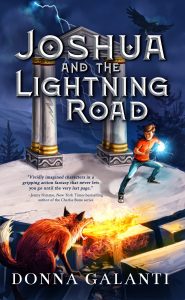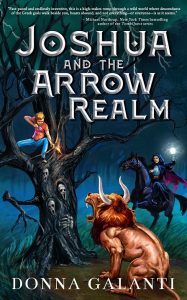Everyone posts New Year’s resolutions. I don’t so much do resolutions as goals. And I would like to try and make them realistic goals, so I don’t frustrate myself. The uber-healthy diet and sculpted beach-body? Not gonna happen. I’m going to try something more amenable to my couch-potato self.
I have talked about being in the midst of a great burnout. No creativity at all. 2018 was horrific, writing-wise. I totaled 89,672 words—and 73,218 of them were blog or other non-fiction writing words. Compare that to 2017, when my total words were 405,116, with 326,542 of those being fiction, and you can see how badly I fell off the workhorse.
So what am I aiming for this year? I have no specific word count in mind, but I do have two goals I want to reach:
- Finish revising Veritas.
- Re-release The Witch of Zal with new cover and illustrations.
Both are doable. I intend to do them.
Over this holiday, I have been trying to sleep more, to get out of the spiral of exhaustion and anxiety that I’ve been in for months. I think it is helping. I have an interest in getting back to revising Veritas, which I have been avoiding for quite some time. There’s a new angle I want to lay into the existing framework that intrigues me–and scares me, as I am not certain I can pull it off. But I want to try, which is huge step forward.
So that’s my master plan for 2019. Not Earth-shattering, for sure. But within my reach. The burnout took a long time to set in fully, it make take some time to climb my way out of it. But I pledge to be kind to myself, to try and focus on taking better care of myself, and hopefully get back on that writing workhorse again.
What goals have you set for yourself this year?





A Muddy Revision Slog
I am finally getting back to writing. Not drafting right now, but revising something I have been putting off. Sometimes revision is clear and straightforward. In fact, I usually prefer revising to drafting. But this time the revisions are difficult—muddy.
In theory, I know what to do. Among other things, I am shoring up the “goals” in my protagonist’s scenes. Making clear what she wants. Because the feedback I got was that her goal got muddy after the first few chapters and therefore the reader lost interest in all the confusion.
So I have sharpened in my mind the overall story goal—the one that drove her from the beginning. But I am having trouble bringing that goal to the surface in all the scenes, because sometimes the scene goal necessarily overshadows the book goal. When you’ve been imprisoned and tortured, the immediate goals of survival and escape take precedence over all else. So maybe I have the wrong story goal altogether and that’s why I’m having so much trouble with it. And sometimes what the character thinks they want and what they actually need are not the same. And sometimes what they want changes over time. So I’m slogging along but not sure I’m making the story any better—I may be muddying it further.
The second part of the revision is my struggle with the Points of View (POV). I have 3 POV characters—but have been told that I should lose two of them. One is the villain (an adult), and the advice I got is that adult POVs have no place in YA. Unfortunately for me, I love this villain and find her very interesting, so it’s killing me to lose her POV. I also need to find a way to get some info that only that character knows into the story so the reader can know it, too.
I disagree with losing the second POV, as it is the twin brother of the main character. The genre is also space opera, which by its nature has a large canvas and usually needs more than one POV to tell the complete story. So I am trying to tie his POV closer to the main character’s to make his POV more relevant, as well as trying to find other ways to tell his part of the story that may involve the main character.
Again, not sure if I am helping or muddying at this point.
I’ll just push through the mud and then take a look at the finished whole and see what I think. I’m not totally happy with the way the revisions are going, but that doesn’t necessarily mean they’re not actually going well. It’s just that right now there’s so much mud I can’t find the solid ground underneath.
So, fellow scribes, how do you know if your revision is making your story better or worse?